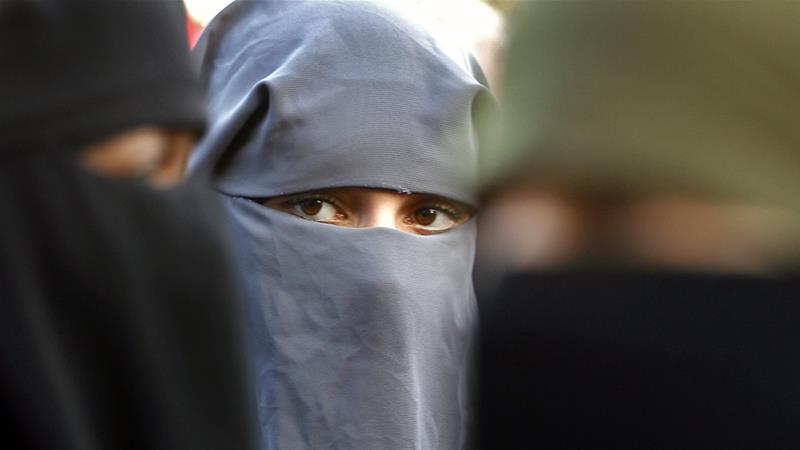Home » World News »
Denmark passes law banning face veil in public spaces
Ban follows similar restrictions on full face veils in Belgium, France, Netherlands, Bulgaria and parts of Switzerland.
Denmark has joined several other European countries in banning the full-face veil worn by some Muslim women in public spaces.
In a 75 to 30 vote on Thursday, Danish legislators passed the law presented by Denmark’s centre-right governing coalition. The law was also backed by the Social Democrats and the far-right Danish People’s Party.
“Anyone who wears a garment that hides the face in public will be punished with a fine,” says the law, which is to take effect on August 1.
Violating this law will lead to a fine of 1,000 kroner ($156). Repeated violations will be fined up to 10,000 kroner ($1,560).
The Danish ban follows similar recent bans on veils covering the entire face in Belgium, France, Netherlands, Bulgaria and parts of Switzerland.
The Danish government says the law is not aimed at any religion. But the law, popularly known as the “burqa ban”, is seen by some as directed at some Muslim women, who choose to wear the face veil in public.
Following the Danish vote, Amnesty International’s Europe Director Gauri van Gulik said in a statement: “All women should be free to dress as they please and to wear clothing that expresses their identity or beliefs.
“This ban will have a particularly negative impact on Muslim women who choose to wear the niqab or burqa.
“If the intention of this law was to protect women’s rights, it fails abjectly.”
It is not known how many women wear the burqa in Denmark.
“I don’t think there are many who wear the burqa here in Denmark. But if you do, you should be punished with a fine,” Justice Minister Soren Pape Poulsen was quoted as saying by Ritzau news agency in February.
The European Court of Human Rights last year upheld a Belgian ban on wearing it in public.
France was the first European country to ban the niqab in public places with a law that took effect in 2011.
Source: Read Full Article



